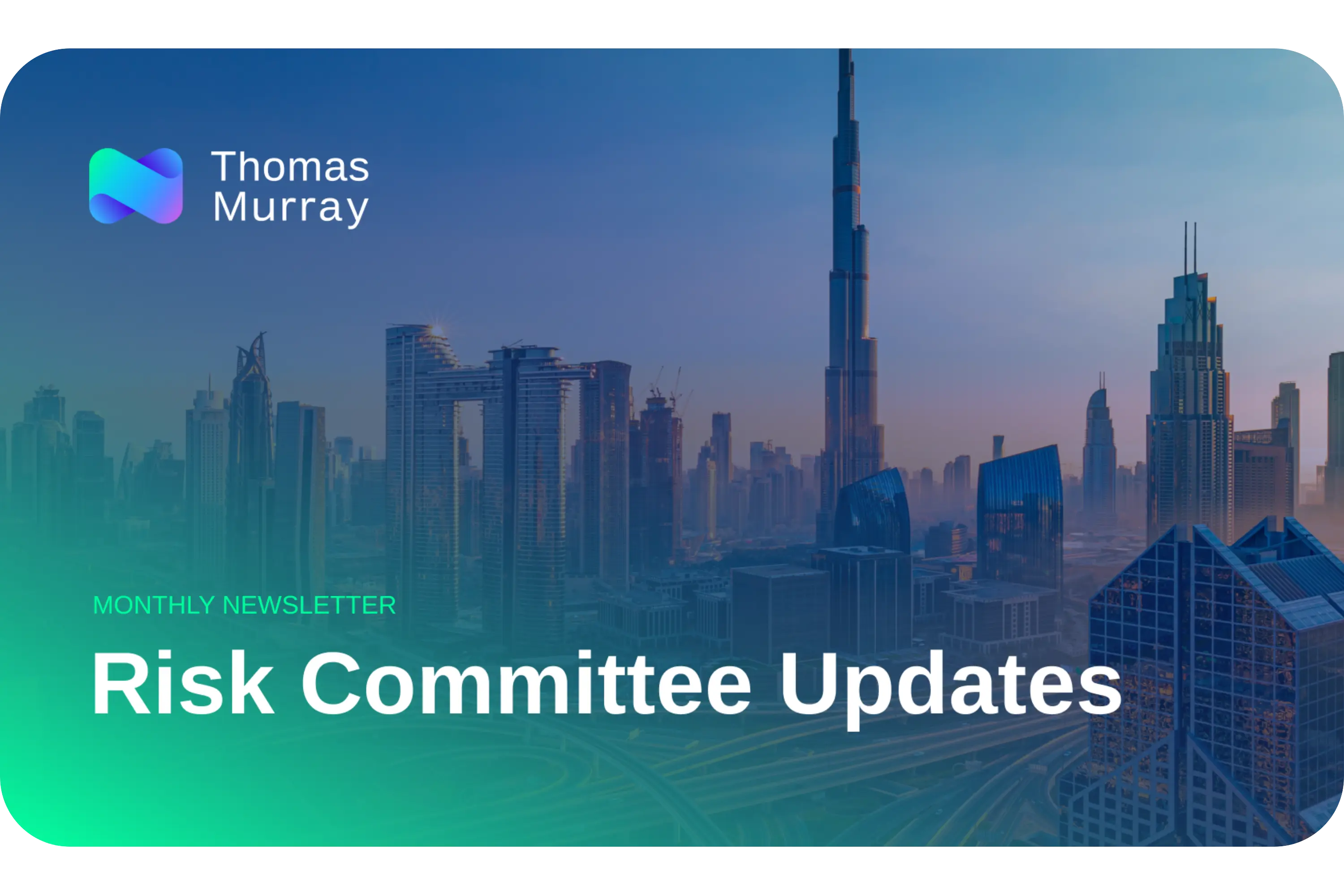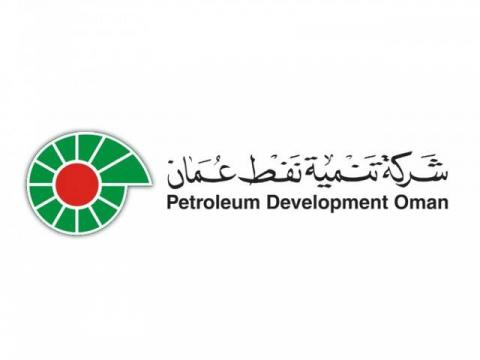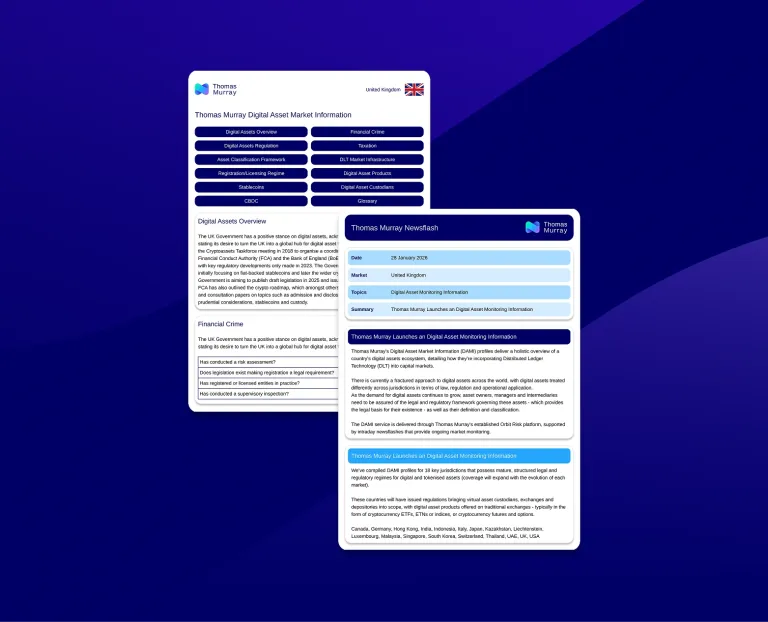This month the Risk Committee Update heads north, with a focus on the Nordic nations.
Finland
Overview
The Russian invasion of Ukraine, the conflict in Gaza, and international trade restrictions pose risks to global and national financial systems around the world. This uncertainty can impact economic growth and financial market stability, and is keenly felt in nations immediately bordering those at war.
Finland entered a recession in 2023, which is expected to persist throughout the rest of 2024. This economic downturn has impacted market activity in the banking and finance sector, with reduced demand for debt financing and acquisition financing.
Geopolitical risk landscape
Russia-Finland relations
Sanctions against Russia are affecting Finland's economic recovery, as Russia was previously an important trading partner.
Finland’s NATO membership has altered its security environment, increasing tensions with Russia. Russia considers Finland an “unfriendly country,” and so Finland’s cyber environment and critical infrastructure are considered particularly susceptible to Russian threats.
However, it is possible to overstate the levels of anxiety. The Finnish Security and Intelligence Service (SUPO), for example, warns of an "elevated" risk of Russian spying and influence operations targeting Finland – even as it takes the official position that, “Russia's main attention is elsewhere than in Finland, and a military threat is not likely in the near future.”
In response, Finland has taken steps to prepare for various risks, including updating its national risk assessment and strengthening border security.
Cyber security profile
Tensions on the border can affect energy markets, which in turn can impact the broader economy and the banking sector's loan portfolios, particularly for energy-intensive industries.
This heightens the need for Finland to be prepared against cyber risks, as Russia could attempt to disrupt, weaken or destroy societal functions, targeting management systems and communications networks. The financial sector and authorities must continue to strengthen their defences against operational disruptions and cyber threats.
To this end, banks in Finland are allocating more resources towards measures such as advanced security technologies and protocols.
Other proactive steps include running frequent vulnerability assessments and simulated cyber-attack exercises to identify weaknesses in their systems and improve their incident response capabilities. Finnish banks are working closely with national cyber security agencies like the National Cyber Security Centre Finland (NCSC-FI) to share threat intelligence and coordinate responses to cyber incidents.
ESG considerations
Finnish banks are increasingly incorporating sustainability principles into their operations, aligning with the country's commitment to the UN's 2030 Agenda for Sustainable Development and its goal to be carbon-neutral by 2035.
Banking sector resilience
The Finnish banking sector is currently profitable and sound, with strong capital buffers that help counterbalance vulnerabilities. Despite economic challenges, Finland's banking sector remains robust and well-capitalised. The Common Equity Tier 1 (CET1) capital ratio improved to 18.3% in 2023, significantly above the European average. This strong capital position allows banks to withstand potential economic shocks and continue providing financial services.
The Bank of Finland and other regulatory bodies have implemented measures to strengthen the resilience of both banks and borrowers.
Stress tests conducted in early 2024 showed that Finnish banks have adequate liquidity reserves to handle abrupt or protracted stress situations.
The Finnish financial system demonstrated resilience during the global banking turbulence in March 2023, largely due to swift crisis management measures by international authorities.
While geopolitical tensions are creating new threats, the Finnish banking system appears to be well-prepared to face these challenges. However, continued vigilance and preparation for potential risks remain crucial for maintaining financial stability.
The Finnish banking sector remains highly resilient against potential credit losses, with capital adequacy levels well above the European average.
Despite current challenges, if the economy develops as forecast, the Finnish banking sector's profitability is expected to remain good, and its capital position is projected to strengthen further in the coming years.
Denmark
Denmark remains a stable political environment with a robust financial sector and a dynamic, innovative tech industry, providing Denmark with significant opportunities for development in fintech and other financial services.
However, the Danish equity market has experienced low turnover and significant delistings in recent years, with difficulties attracting new listings. There is a concentration of liquidity and activity in a limited number of large company shares, which can be an obstacle for investors – particularly institutional investors.
The integration of clearing and settlement infrastructures has also been a challenge. While trading platforms have become more integrated regionally, the integration of clearing and settlement infrastructures has lagged behind, primarily due to cost considerations.
While Denmark has a safe and efficient payments infrastructure, there is an ongoing need to ensure its stability and efficiency, particularly given the high daily transaction volumes (averaging 724 billion kroner per banking day).
Denmark maintains a persistent and strong focus on the threat from cybercriminals. While systems are generally well-equipped to counter cyberattacks, it's not possible to implement safeguards that provide full protection against the most advanced attacks.
Denmark faces challenges in raising the share of information and communication technology (ICT) specialists in the workforce and addressing the growing shortage of talent with advanced digital skills in areas like artificial intelligence, high-performance computing, and cyber security.
There is a continued need to work on crisis management planning and the ability to handle serious cyber incidents if or when they occur.
The financial infrastructure, in particular, needs to continuously adapt to technological advancements and changing risk profiles, such as the implementation of order-driven platforms and internationalisation of trading in Danish securities.
Sweden
As a small, open economy, Sweden is vulnerable to geopolitical tensions and deglobalisation trends. Intensified conflicts or disruptions in the international monetary system could dampen exports and investment, weakening economic growth.
That said, Sweden's financial market infrastructure (FMI) and banking sector are robust and are supported by strong regulatory frameworks and a stable economic environment. However, the country must continue to address geopolitical and cyber security risks to maintain its resilience.
Sweden faces several geopolitical risks, primarily stemming from its strategic location and international alignments:
Russia relations: The ongoing tensions between Russia and Western countries, especially following Russia's invasion of Ukraine, have heightened geopolitical risks for Sweden. The country has increased its defence spending and it joined NATO in March 2024.
Regional security: Sweden’s involvement in the Baltic Sea region, a hotspot for military and political tensions, adds to its geopolitical risk profile. The presence of Russian military activities in the area necessitates heightened vigilance and defence readiness.
Economic sanctions: Sweden's alignment with EU sanctions against Russia impacts its economic relations and exposes it to retaliatory measures. These sanctions have broader implications for Sweden's trade and economic stability, and for its cyber security profile.
Sweden is highly digitalised, making cyber security a critical concern. It has experienced an increase in cyber-attacks, targeting both public and private sectors. These include ransomware attacks, data breaches, and state-sponsored cyber espionage.
Swedish authorities have identified cyber threats from foreign states, particularly Russia and China, which employ sophisticated methods to infiltrate critical infrastructure and steal sensitive information. In response, the country has implemented several measures, including the establishment of the Swedish Civil Contingencies Agency (MSB) to coordinate national efforts. The government also collaborates with international partners to enhance its cyber defence capabilities.
Sweden’s FMI and banking sector are well-developed and resilient, and are well-integrated with European and global markets. Its banking sector is characterised by high levels of capitalisation and liquidity. S&P Global Ratings assigns Sweden a very low economic and industry risk score, reflecting the sector's resilience.
Norway
Norway remains a stable democracy with a low incidence of political violence. But it faces several geopolitical risks primarily due to its strategic location and economic dependencies.
As a major exporter of natural gas and crude oil, Norway is susceptible to global energy market fluctuations and geopolitical tensions, particularly those involving major energy consumers and producers.
Norway’s interests in the Arctic region and its proximity to Russia pose clear risks. The significance of the Arctic, with its untapped natural resources and strategic shipping routes, can lead to increased tensions and competition. And, as a NATO member, Norway is a potential target for adversarial actions from non-NATO states.
Like other Nordic nations, Norway is one of the most digitalised countries in the world, making it highly dependent on secure digital solutions. The country has seen a rise in cybercrime, exacerbated by the coronavirus pandemic and the war in Ukraine. Cyber-attacks have become more frequent and sophisticated, targeting critical infrastructure, e-health systems, and the energy sector.
Norwegian authorities are particularly concerned about cyber threats from foreign states, which employ various methods, including network operations, source recruitment, and digital sabotage. The 2021 attack on the Norwegian Parliament’s email systems exemplifies the severity of such threats.
As part of its mitigation efforts, the Norwegian government has significantly invested in cyber security, allocating NOK 581 million in the 2023-revised national budget for enhancing cyber defence capabilities. This includes protecting ICT systems and increasing staffing at the Cyber Security Centre.
Norway’s FMI and banking sector are robust, yet they too face specific challenges. Despite a well-integrated trading platform, the integration of clearing and settlement infrastructures remains a challenge, primarily due to cost considerations.
The dominance of a few international providers in the cloud services market poses security risks – which were realised in part on 19 July when a software update by Microsoft’s cloud provider caused a global Microsoft outage. The Norwegian state is increasingly focusing on securing digital infrastructure to mitigate these vulnerabilities.
The banking sector is well-capitalised and resilient, with S&P Global Ratings assigning Norway a very low economic and industry risk score. This resilience is supported by regulatory oversight and strong financial institutions, which ensure that Norway’s FMI and banking sector are well-positioned to handle both domestic and international challenges, supported by strong regulatory frameworks and significant state involvement.
In case you missed it...
Halla Tómasdóttir to be sworn in as Iceland’s seventh president (guardian)
US Fed paves the way for pre-election rate cut (The Telegraph)
Arrest warrant issued for Liberia's ex-finance minister (BBC)


Risk Committee Updates
Stay informed with Thomas Murray for the latest on market dynamics and regulatory trends – subscribe to Risk Committee Updates on LinkedIn.
We safeguard clients and their communities

Petroleum Development Oman Pension Fund
“Thomas Murray has been a very valuable partner in the selection process of our new custodian for Petroleum Development Oman Pension Fund.”

ATHEX
"Thomas Murray now plays a key role in helping us to detect and remediate issues in our security posture, and to quantify ATHEX's security performance to our directors and customers."

Northern Trust
“Thomas Murray provides Northern Trust with a range of RFP products, services and technology, delivering an efficient and cost-effective solution that frees our network managers up to focus on higher Value activities.”
Insights

Why 72 hours is the New Standard for M&A Cyber Due Diligence
A decade ago, cyber due diligence sat somewhere between “nice to have” and “we’ll deal with it post-close.” That world no longer exists.

Thomas Murray Launches Digital Asset Market Information (DAMI)
Thomas Murray, a global leader in risk management, due diligence, and cybersecurity services, is proud to announce the launch of Digital Asset Market Information (DAMI).

Solving the "Scale Paradox": How to Automate Portfolio Oversight with Fewer People
In 2026, private equity technical teams are facing a "Scale Paradox": portfolios are growing in complexity, while in the internal teams responsible for operations and cybersecurity oversight, headcounts remain stagnant.

How Private Equity Hackers Choose Their Targets
Private equity firms sit at the intersection of high-value financial transactions, sensitive deal data, and an expanding portfolio of technology heavy portfolio companies – and it’s this combination that makes PE an attractive target for cyberthreat actors.

